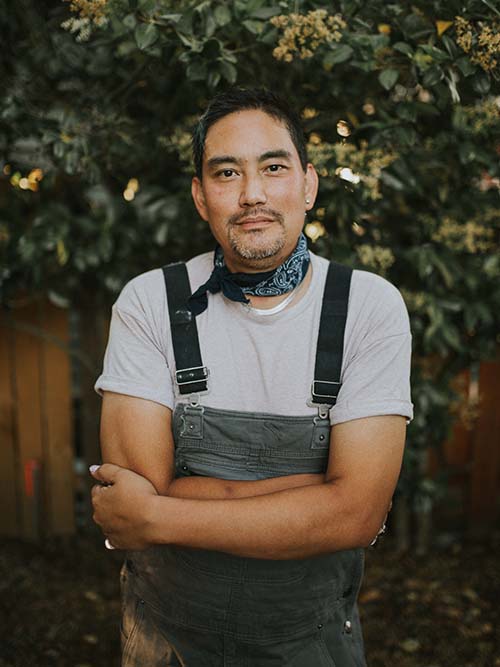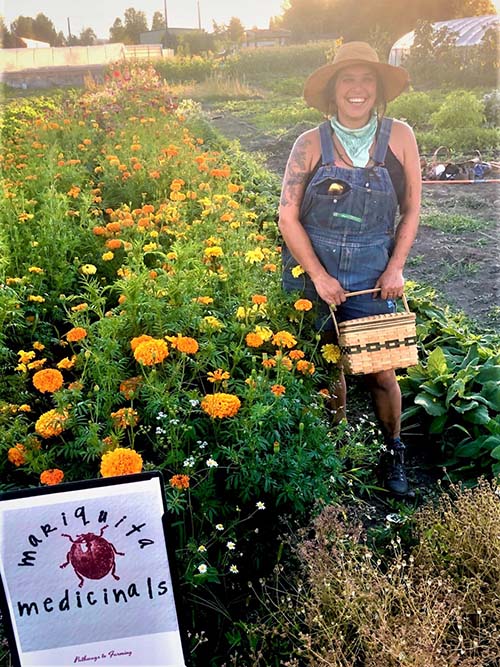Featured Program: Pathways to Farming
Featured Program: Pathways to Farming
Oregon Food Bank and Mudbone Grown are proud to partner on a host of community initiatives. Among them is the Pathways to Farming program, supported through our collaboration on a grant from the USDA National Institute of Food and Agriculture (NIFA).
Building a more resilient, thriving and entrepreneurial food industry through culturally-competent farming programs and small business development services, Pathways to Farming strives to gain access to more land and resources for farmers of color. The program is working to establish a more just and equitable sustainable food system in the Portland Metro area through the incubation of small agricultural businesses.
Below are profiles of two of the 13 incredible farmers participating in Pathways to Farming. You can meet all the farmers in the program and connect with their inspirational work as well!
Flynne Olivarez, Mariquita Medicinals
Flynne Olivarez is a queer, latinx medicine and flower farmer, using the Mariquita (ladybug) as an inspirational symbol of determination and resilience.
Flynne believes firmly that all of us can and should have access to natural ways of healing that allow us to lessen our grip on capitalism when it comes to taking care of ourselves and each other.
She started growing her own food and flowers as a light hobby about 15 years ago, while forging a career in education, youth development and nonprofit management.
Thanks to the Pathways to Farming Program with Mudbone Grown, Flynne is able to turn this radical act into a complete lifestyle and career shift. Through this program, Flynne manages a quarter-acre plot of medicinal herbs and flowers for her small business. She creates tea blends, tinctures, tonics, salves and flower essences with what she grows on the farm. She is also currently running a Medicinal Bouquet Share this season, bringing bouquets of medicinal plants and flowers to her members, accompanied by botanical ID cards and recipe suggestions. Part of what drives Flynne to grow as a farmer is to continue learning, sharing and building knowledge of plants and their healing gifts with folx in her communities.
Flynne also works with Rogue Farm Corps in the Portland Chapter Coordinator role, and occasionally works at Vibrant Valley Farm on Sauvie Island.
David Devery, Mabuhay Gardens
Growing up in the Pacific Northwest, my first lessons in Filipino American history were from family who lived and farmed in and around the Yakama Indian Reservation in Washington State. I learned from my grandfather and other manongs, stories of labor strife, race riots, and political struggle, all in attempts to keep Filipinos from farming. My Grandfather immigrated from the Philippines in the 1930’s and worked to fight the laws that were made to keep Filipinos from leasing and buying land. Rediscovering farming through food justice and urban farms has brought me full circle to pursuing a lifelong dream of becoming a third generation Filipino American Farmer as well as gaining a deeper connection to ancestors, soil, community, and social justice.
I am farming in NE Portland through the Pathways to Farming program. I am a small scale flower farmer who practices no-till. My farm name is Mabuhay Gardens. Mabuhay in Filipino can be defined as “long live”, “may you live”, “cheers”, “welcome”, and “hurrah“. This helps me define flower farming while growing and redefining who I am as a third generation Filipino American farmer.


